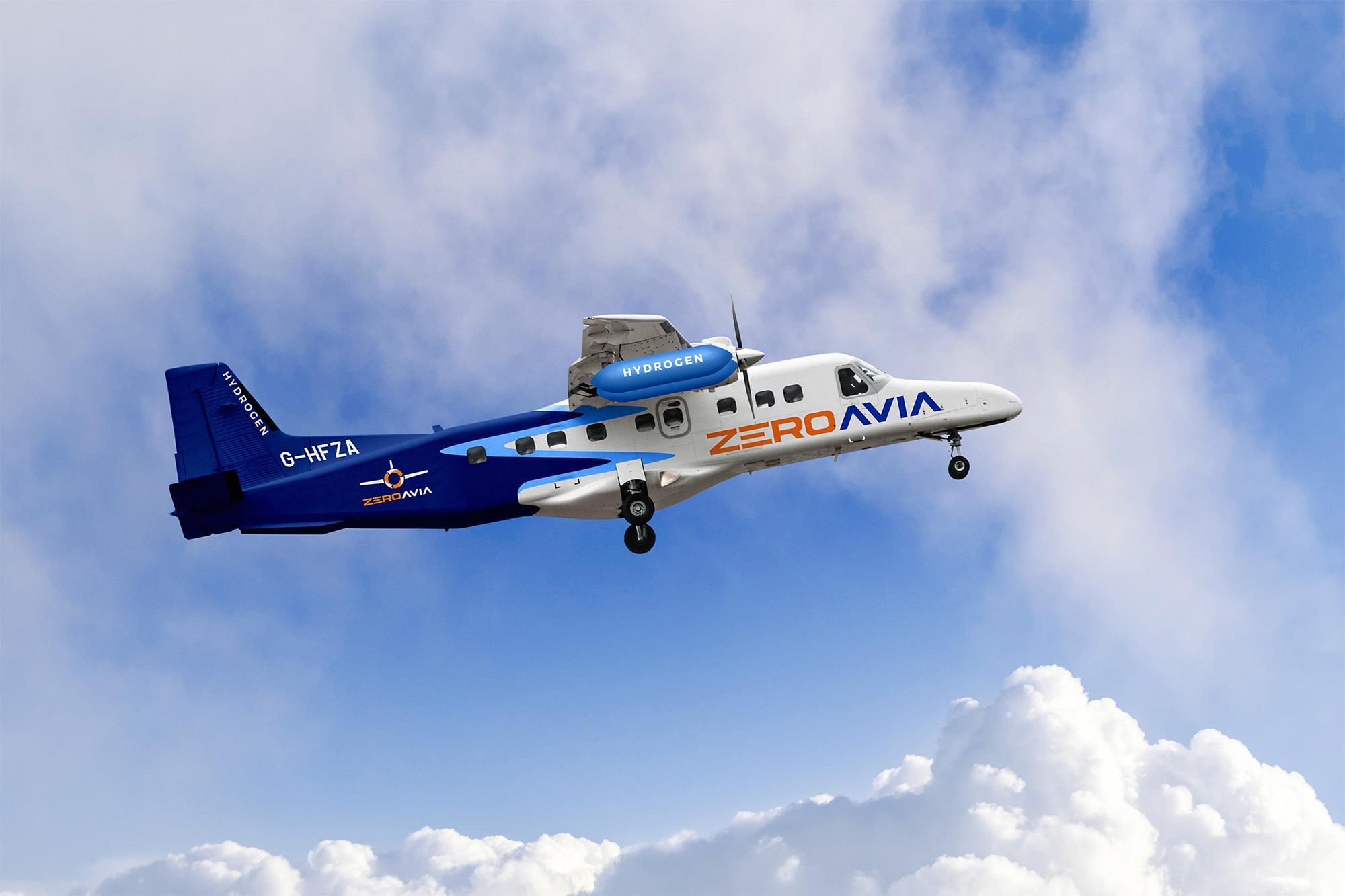
ZeroAvia will work with Airbus on ground and flight testing of hydrogen fuel-cell propulsion systems.
Airbus has joined the list of investors in hydrogen propulsion developer ZeroAvia, co-leading a new funding round with existing backers Barclays Sustainable Impact Capital and Saudi Arabia’s Neom.
As part of the investment, Airbus and ZeroAvia have agreed to collaborate on certification approaches for hydrogen power systems and work together on key technologies including liquid hydrogen (LH2) storage, ground and flight testing of fuel cell propulsion systems, and development of hydrogen refueling infrastructure and operations.
Airbus has previously invested in fuel-cell powertrain developer Universal Hydrogen.
ZeroAvia has not disclosed the value of the investment round or the total funding raised so far. "For legal reasons, we are not disclosing this investment size at this stage, but this is our largest financing round to date," ZeroAvia said Sept. 18. "However, for context, Series B was $72 million and Series A was $56 million total.
ZeroAvia says the new funding round will progress its first product, the 600-kW ZA600 hydrogen-electric powertrain, through to certification as well as support development of the larger, 2.5-4-megawatt ZA2000 and in-house development of high-temperature fuel cells, electric motors, power electronics and LH2 storage.
The startup has completed an initial campaign of flight tests with a ZA600 powertrain demonstrator in a Dornier 228 testbed and is finalizing the design ahead of applying for certification with the UK Civil Aviation Authority. ZeroAvia is targeting market entry in 2025 with supplemental type certification of a retrofit for the Cessna Caravan.
Under its ZEROe initiative to develop technologies for a hydrogen-powered commercial aircraft that could enter service by 2035, Airbus is developing its own megawatt-class fuel cell engine demonstrator for flight testing on an A380 testbed in 2026. “For ZeroAvia to now have investors such as Airbus coming on board is the strongest possible validation of the prospects for hydrogen-electric propulsion technology,” said Val Miftakhov, ZeroAvia’s founder and CEO.
Airbus highlighted the startup’s test progress with the 228 flights as well as its efforts to deploy hydrogen infrastructure for aviation. “ZeroAvia is supporting the development of a wider hydrogen ecosystem for aviation—technologies, decarbonized hydrogen supply and certification of hydrogen propulsion systems—which all complement well with our own ambition to bring a ZEROe hydrogen-powered aircraft to service by 2035,” Glenn Llewellyn, Airbus vice president for ZEROe aircraft, said in a statement.
In August 2021, Airbus Ventures participated in Universal Hydrogen’s $20.5 million Series A funding round. The U.S. startup is flight-testing a megawatt-scale fuel cell powertrain demonstrator and plans to certify a hydrogen-electric propulsion retrofit for the ATR 72 regional turboprop.
As well as Airbus, Barclays and Neom, existing investors Alaska Airlines, Amazon Climate Pledge Fund, AP Ventures, Breakthrough Energy Ventures, Ecosystem Integrity Fund, Horizons Ventures and Summa Equity also participated in ZeroAvia’s latest funding round. ZeroAvia has previously secured investment also from American Airlines, International Airlines Group, Shell Ventures and United Airlines.
